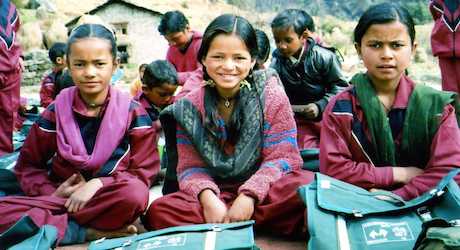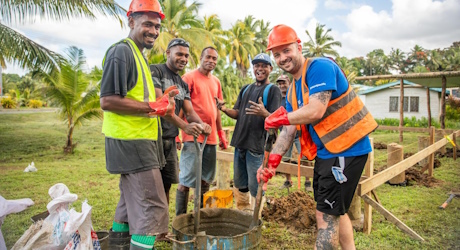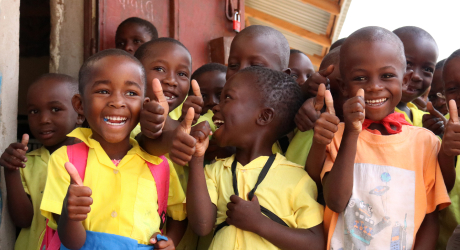Footprints Project
Since 2005, travelers like you have helped us change the world through micro-donations.

-
A total of
1597
Travelers
-
donated
$4001.64
(100% funded) -
to help improve
Environment
-
in
India
Project Background
PeAk is a small organisation striving to advance primary school education and implement alternative technologies in the Kumaon region, India. In 2015/16 PeAk, funded by World Nomads customers through the Footprints Network, implemented a fuel efficient stove project. After extensive community consultation and research into stove (Hindi – chulha) design, PeAk identified a trial site in the village of Jatoli at 2400m. This project was designed to improve overall householder health and lessen the ecological foot print of using fuel wood in an open hearth which is centrally located in a traditional house for both cooking and heating at a high altitude.
Project Details
PeAk staff had one household that was willing to be the ‘guinea pig’ and so the first stove was built thanks to Hookum & Lacchima. Over a period of time, fellow villagers came to assess the stove over many cups of tea; coupled with community education, cultural barriers were overcome and perceptions shifted. Suddenly women were talking about stoves, impromptu community meetings were often held at the local ‘chai’ (tea stall) and word came to us in Khati (7km away) that every householder was interested in a stove! The first thought was ‘no – it isn’t possible’ as PeAk staff were aware that global uptake has been mixed; just ask Hillary Clinton, stoves were her ‘pet project’ when she was foreign secretary.
Over a period of time PeAk had trialed various chulha designs. After community scrutiny, the current design was ‘fine-tuned’ for local conditions. The total number of stoves ordered after consultation with the all male ‘community elders’ was 22. However, solo and or elderly women and newlyweds had been omitted, go figure! Understandably, Sauruli, a strong elderly woman, protested and subsequently conducted a house to house audit and revealed a total figure of 37 chulhas. Sauruli had the “I told you so” look!

The community were involved in every facet you could imagine; from transportation and choosing the ‘stove builders’ to cementing around the flue on stone roofs, cutting out tin circles for a kettle or pot when not in use and nailing UV stable plastic on the small windows so the room remained light but was kept warm during the daytime. All done in a jovial environment over copious cups of chai that fostered amazing community responsibility. A huge thank you must go to Dinesh and Digember whom were diligent in stove construction and alleviated much of the stress for the project coordinators with their eclectic skill set.
The women render their stoves with red clay (and loving care) every few days, adding to the sense of ‘ownership’ through maintenance. Long term benefits include a 30% decrease in wood collection freeing up time for other pursuits and, in the short term, not being choked by smoke particularly when standing up and warmth in a room away from the fire. Jatoli villages are true ecosystem people with many natural products sourced from the temperate rain forest, hence an indirect effect on fuel efficient stoves is the preservation of these temperate and diverse systems. The deleterious effects of smoke inhalation is difficult to quantify but it is envisioned that decreased particulate matter (PM 2.5 & 10), a known carcinogen, will alleviate respiratory disease over the long term. And for the first time in our history of working in the region windows and doors were closed and we could see our hosts at dinner!

Key Project Outcomes
- All 37 households in Jatoli have chulhas installed and in use.
- 8mm plate steel for the doors, 6mm angle iron for the frames (7kg per unit) and 3mm galvanised sheet metal for the flue ensure good thermal mass, minimal maintenance and a long life span.
- Wood use is up to 30-35% less when the stove is used effectively, thereby lightening the work load of women and girls in wood collection and preserving the local temperate rain forest.
- Alleviating indoor air pollution will ameliorate health ramifications from wood smoke exposure.
- This project provided local employment - metal fabrication, transportation by jeep and mule through to stove construction - from start to finish, thereby helping the regional and local economy.
- The new skill set gained through this project will be utilised on future stove projects in the region.
- Use of local stone in the design enhanced thermal efficiency by re-radiating heat.
- The new chulhas have reduced the risk of childhood burns.
- In line with the Millennium Development Goals, the improvement of indoor air quality promotes environmental sustainability through less fuel wood use, frees up time spent in wood collection for other income generating pursuits (or in the case of Jatoli – some rare ‘non work’ time), reduces child mortality and improves maternal health (WHO 2014)
What's Next?
This project will be monitored at 6 &12 months intervals to ensure the stoves are effectively functioning. Building on the success of the installation of the Jatoli wood efficient stoves PeAk will expand this project in the district to approximately 50 more households in the next phase.
Throughout this (and prior) projects PeAk has developed a strong community network within the region, leading to a solid understanding of the issues facing those in remote Himalayan locations. This will enhance on the ground solutions to everyday needs in future projects.
Traveling soon? When you buy travel insurance with us, you can make a contribution towards a cause you care about.
Get a quote







